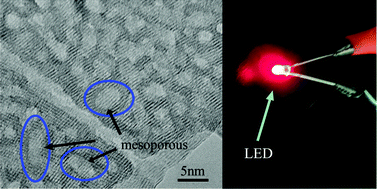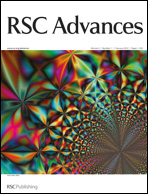Asymmetric electrochemical capacitors with high energy and power density based on graphene/CoAl-LDH and activated carbon electrodes†
Abstract
Asymmetric electrochemical capacitors (ECs) consisting of composites of reduced graphene oxide (RGO) and CoAl layered double hydroxide (LDH) as positive


 Please wait while we load your content...
Please wait while we load your content...